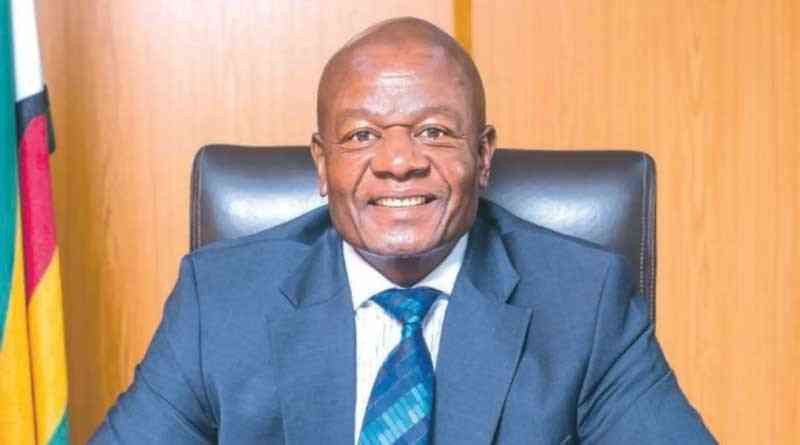
The ongoing evictions in Zimbabwe have sparked and stirred a lot of controversies and conversations amongst people
Who owns communal land in Zimbabwe?
Communal land has no owner in the strict sense.
However, the president of Zimbabwe is given authority over all communal land. It is the President who then allows its occupation and use in terms of the Communal Land Act.
Section 4 of the Communal land Act [Chapter 20:04] (hereinafter referred to as Communal Land Act) vests all communal land in the president.
The provision reads; ‘‘4 Vesting of communal land
Communal Land shall be vested in the president, who shall permit it to be occupied and used in accordance with this Act”
*Does this the president owns the land in Zimbabwe?
- Mavhunga puts DeMbare into Chibuku quarterfinals
- Bulls to charge into Zimbabwe gold stocks
- Ndiraya concerned as goals dry up
- Letters: How solar power is transforming African farms
Keep Reading
There are two schools of thought i.e the president in his personal capacity owns all communal land or he owns the land is his official capacity as the president.
This provision is constitutional so long as vesting the land in the president does not nullify the rights of people who, by virtue of the definition in the constitution, hold the land in accordance with customary law.
Vesting it in the president does not turn it into state land which the president can dispose of at will.
Section 4 of the Communal Land Act means that communal land is vested on the state (but is not state land) and not individuals.
The president as the head of state therefore oversees the distribution of the land. The president is like a custodian of the communal land. In the case of Chikutu & Ors v Minister of Lands & Ors HH 02-22, it was held that vesting communal land in the president is done to ensure orderly development.
The court further held that the president does not own the lands in his personal capacity, but by virtue of the powers vested in him as the state president.
What is communal land?
Section 332 of the Zimbabwe Constitution defines the term “Communal Land’’ as follows:
“Communal land” means land set aside under an Act of Parliament and held in accordance with customary law by members of a community under the leadership of a chief”
Apart from that definition, the constitution mentions communal land several times:
It excludes communal land from the definition of “agricultural land” in section 72.
This means that communal land is not liable to be expropriated by the state for public purposes in terms of that section, under the “fast-track” land reform programme.
Likewise, communal land is excluded from the definition of “agricultural land” that is subject to redistribution under Chapter 16 of the constitution (see section 288).
The communal land Act defines ‘communal land’ as consisting of land which, immediately before February 1, 1983, was tribal trust land in terms of the Tribal Trust Land Act (No 6 of 10979), subject to any additions thereto or subtractions therefrom made in terms of Section 6. In terms of the tribal trust land Act, tribal trust land consisted of land, which, immediately before the appointed day (the day the act would come into operation), was tribal trust land in terms of the Land Tenure Act , subject to any additions thereto and subtractions therefrom made in terms of that Act.
Tribal trust land, according to the Tribal Trust Land Act, vested in the president.
Communal land and the rights of those who live in it
All these provisions have important consequences for people who live in communal land:
- They have recognisable rights over the land: The definition of communal land makes it clear that people who live there as members of a traditional community hold the land, whether collectively or individually, in accordance with customary law. Their rights in and over the land are recognised by the constitution.
- Their rights are not subject to expropriation or redistribution by the state: This follows from the fact that communal land is not “agricultural land” for the purposes of section 72 or Chapter 16 of the constitution.
- Their rights are protected under section 71 of the constitution: Section 71 protects everyone, except those who occupy agricultural land that is liable to expropriation under section 72, against being compulsorily deprived of their property, and “property” is defined so widely – “property of any description and any right or interest in property” – that it obviously covers the customary-law rights of inhabitants of communal land.
Before someone can be deprived of their property under section 71:
The deprivation must be necessary in the interests of defence, public safety, public order, public morality, public health, town and country planning, or in order to develop the property for a purpose beneficial to the community.
The acquiring authority must give reasonable notice “to everyone whose interest or right in the property would be affected by the acquisition”.
If the acquisition is contested, then either before the acquisition or no more than 30 days afterwards, the acquiring authority must apply to a competent court for an order confirming the acquisition.
If the court does not grant the order the property must be returned.
The acquiring authority must pay “fair and adequate” compensation for the property either before acquiring it or within a reasonable time afterwards.
The person whose property has been taken must be given a right to apply to a competent court for an order determining the amount of compensation payable.
These property rights can be limited by law in accordance with section 86(2) of the constitution, but the limitation must be “fair, reasonable, necessary and justifiable in a democratic society based on openness, justice, human dignity, equality and freedom”.
Rural district councils vs traditional leaders
Traditional leaders in most parts of Africa always played a role in the allocation and management of communal land for residential, agricultural and grazing purposes.
In Zimbabwe, for example, traditional leaders are generally regarded as the custodians of the land and other natural resources in their respective jurisdictions.
This role has been recognised in the 2013 constitution of Zimbabwe.
Section 282 (1) (d) of the constitution allocates the power to administer communal land to traditional leaders to be exercised subject to legislation.
The Traditional Leaders Act in Section 5 (1) (h) (i) provides that chiefs have the responsibility to prevent any unauthorised settlement or use of communal land and to approve the settlement of any new settlers in their areas.
In terms of the Communal Land Act, communal land may be occupied or used for agricultural or residential purposes only with the consent of the elected rural local government established for the area concerned.
When granting consent to the occupation and use of communal land rural local governments are required to consider customary law relating to the allocation, occupation and use of land in the area concerned.
Further, these elected bodies must also “consult and co-operate” with the relevant chief appointed to preside over the community concerned.
The legal regime around communal land management creates a high degree of ambiguity and potential for overlap of roles between traditional and state institutions.
While the Communal Lands Act suggests that rural local governments are the custodians of land within their respective jurisdictions, the Traditional Leaders Act seems to allocate to chiefs some power over the allocation and management of communal land. In practice and due to custom and tradition, traditional leaders allocate and manage land blurring the competency boundaries with rural local governments.
As a result, conflicts and power struggles between traditional and elected structures with respect to the allocation and management of communal land are common.
In some cases, traditional leaders have acted like parallel governments in rural areas by allocating land which would have been already allocated by the government to other beneficiaries.
This challenge of “double allocation” is common in the new resettlement areas created after the fast-track land reform programme of early 2000.
In these areas there tends to be acute contestation between government actors and traditional leaders over who has the power to register land rights, allocate and administer land, as well as resolve land disputes.
For instance, in Chirumhanzu district of the Midlands province Chief Nhema allegedly “illegally allocated” over 300 families on a piece of land in the resettlement areas without consulting the district land committee representing the government.
The piece of land in dispute had been set aside by the relevant district land committee for grazing purposes.
The over 300 families faced the threat of being evicted.
While chiefs still have influence over land matters in communal areas, they feel relegated with respect to land allocation and management in resettlement areas.
In these areas it is the relevant district land committee, representing the government, which has the power to allocate and manage land.
Read full article on www.standard.co.zw
*Mlondolozi Ndlovu is a Zimbabwean media practitioner, media trainer and researcher. He is a law student at the University of Zimbabwe.









